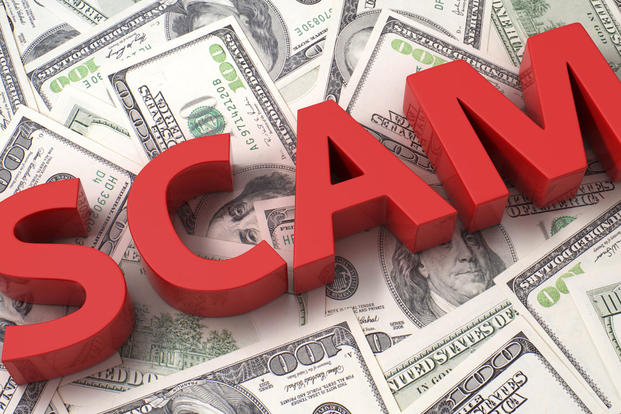Have you ever gotten an offer that was too good to be true, a call out of the blue asking for money to help a veteran's organization you've never heard of?
If so, you are probably part of the growing number of veterans who are the target of scammers.
Veterans Targeted By Swindlers More Often Than Others
Swindlers and con-artists have a long history of targeting soldiers, often leveraging the veteran’s sense of duty and loyalty to fellow veterans. But while preying on veterans is not a new development, the frequency we’re seeing in America today is perhaps unprecedented.
Today, according to a survey conducted by the National Opinion Research Center, veterans are victimized by scam artists twice as often as the general public. Further, the Fraud Watch Network’s recent survey showed 16% of veterans have lost money to fraudsters, compared to 8 percent of non-veterans. And 80 percent of veterans surveyed said they have encountered scams directed specifically to veterans.
“Unfortunately, the men and women who bravely served our country have become a prime target of telephone and online thieves,” said AARP chief executive officer Jo Ann Jenkins. “While Veterans are bombarded by the same scam pitches we all receive, our research found that they’re also under special attack by a number of additional scams tailored just for them.”
Partnership To Help Prevent Veterans From Being Scammed
The AARP Fraud Watch Network and the U.S. Postal Inspection Service have partnered in the launch of Operation Protect Veterans — a national campaign to warn veterans about scams and fraud schemes that target those who have served in the military.
Some of the scams that Operation Protect Veterans is warning veterans about are:
- The benefits buyout offer. Scammers offer an upfront payment of cash in exchange for a veteran's future disability or pension payments. These buyouts are typically a fraction of the value of the benefit.
- The fake charity request. Scammers make fraudulent claims about charitable giving that benefits veterans or wounded service members, when in fact the charity may not exist, or may not give one red cent to veterans.
- Charging for records. A scammer attempts to charge for access to a veteran's military records or government forms. Never pay for your records, all information is free through your local VA.
- VA phishing. Scammers call veterans claiming they work for the VA and ask for personal information to update their records. If you get an unsolicited call from the VA, hang up.
- Employment scams. Con artists post bogus job offers to recruit veterans on various online job boards. The scammer may use or sell your personal information provided in the job application. It's likely a scam if you have to pay to get the job, you need to supply credit card or banking information, or the ad is for "previously undisclosed" federal government jobs.
Technology Is Changing
One obvious advantage that scammers have today is technology that allows cons to operate remotely and anonymously to reach a much larger range of targets. Our advancements in communication have added countless opportunities to the scammer’s malicious motives
In the current Internet age, where scammers are increasingly difficult to locate and arrest, consumer awareness and prevention is the best weapon we have to combat these schemes.
We can defeat them by arming veterans with knowledge of the scammers’ tactics and spreading the word about new scams.
“The U.S. Postal Inspection Service is committed to protecting our veterans from scammers who continuously prey upon them for their own illicit gains,” said Guy Cottrell, chief postal inspector. “We will continue in our fraud prevention efforts to inform veterans about scam artists who fraudulently utilize advances in technology and tailor their pitches towards them.”
Don't Be Fooled
These scammers are a devious, diabolical enemy. They know which heart strings to pull in order to get what they want, which is always the same thing: your money, or your personal information. Veterans, and all Americans, should be suspicious of any phone call or email requesting you send or transfer money or asking for personal information of any kind (e.g., Social Security number, address, etc.).
Don’t give it to them. Research and verify all offers and claims. And if they persist or make financial threats, just remember: in the battle against this kind of criminal, the surest tactic for victory may be to simply hang up or press “delete.”
If you or a loved one has encountered a financial scam in the last 12 months, please help us keep fighting for our veterans by contacting the U.S. Postal Service Inspection Service.
Get the Latest Financial Tips
Whether you're trying to balance your budget, build up your credit, select a good life insurance program or are gearing up for a home purchase, Military.com has you covered. Subscribe to Military.com and get the latest military benefit updates and tips delivered straight to your inbox.





